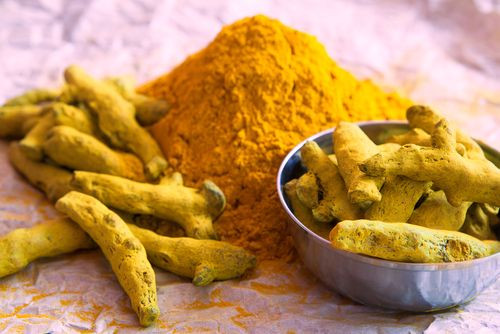Curcumin, The Asian Spice, Helps Fight Mesothelioma When Combined With Other Natural Anti-Cancer Proteins

Put together a common spice that's been used for centuries in Asian cuisine — it also gives turmeric its distinctive yellow color — with certain peptide molecules, and you have a compound that has shown the ability to halt the progression of mesothelioma, an aggressive cancer of the membrane lining the lungs. Curcumin, has long been known for its cancer-inhibiting properties. But when it's combined with cancer-destroying peptides (bonded chains of amino acids), the resulting molecule promotes growth of a protein inhibitor known to combat the progression of mesothelioma. The research, conducted by scientists at Case Western Reserve University in Ohio and the Georg-Speyer-Haus in Frankfurt, Germany, appears in the journal Clinical Cancer Research.
Mesothelioma is a cancer of the mesothelium, the membrane lining present in many of the body's internal organs, including the chest, abdomen, and heart. Malignant tumors rarely affect the heart, but can wreak havoc on the lungs, chest, and abdomen. A major risk factor for developing mesothelioma is exposure to asbestos — three of every four cases have been linked to asbestos — which occurs most often in the workplace. Other, more rare instances in which someone might develop the cancer include genetic risk and exposure to zeolites (minerals related to asbestos), radiation, or the simian virus 40, which was accidentally integrated into some polio vaccines between 1955 and 1963. Whatever the cause, the rare but deadly cancer kills 43,000 people worldwide each year.
"Mesothelioma is a disease that continues to have a significant burden worldwide, and the treatment option is really suboptimal. We must find better ways to treat it," senior author Afshin Dowlati said in a statement. "We now understand the mechanisms that drive cell proliferation and growth in malignant mesothelioma."
A major contributing factor to the progression of mesothelioma, and several other cancers, is the protein STAT3 (signal transducer and activator of transcription 3), which is a protein that binds to DNA to control the rate of transcription of genetic information. STAT3 and other STAT proteins play a role in cell proliferation, differentiation, apoptosis, immune responses, and angiogenesis. Among all the STAT proteins, however, STAT3 plays an important role in carcinogenesis by sending signals that promote the growth of tumors.
Recent studies have shown that the enzyme PIAS3 (protein inhibitor of activated STAT3) represses STAT3 by blocking its DNA-binding factor, preventing it from altering cell growth, and thus its ability to encourage carcinogenesis. To further understand the STAT3-inhibiting function of PIAS3, the current study's researchers looked at how PIAS3 expressed itself in samples of mesothelioma solid tumors taken from patients living in different parts of the U.S. Investigators then compared levels of PIAS3 to those of STAT3 in each sample. They also looked at how curcumin and peptides extracted from PIAS3 segments acted together to fight mesothelioma cells.
They found that low levels of PIAS3 appeared most when there were high levels of STAT3, findings that also implied the patient was closer to dying. Conversely, patients with high PIAS3 levels had lower levels of STAT3, and therefore a 44 percent lower chance of dying over the courst of a year. When it came to the combined curcumin and PIAS3 peptides, they found that it was able to lower STAT3 activity and even kill mesothelioma cells. Their findings demonstrated that PIAS3 could serve as a predictive marker when managing mesothelioma because of how it appears when compared to STAT3.
The experiments' success has prompted the scientists to begin clinical trials in an attempt to design ways to increase intracellular levels of PIAS3 along with curcumin. Though curcumin can be eaten, it won't present the same kind of effect, as it's hindered by the way it's absorbed in the gut. “Our findings beg the question of what role PIAS3 could play in limiting STAT3 activation in other cancers as well," Dowlati said. "There is an opportunity to extend this discovery because a number of cancers are STAT3-activated."
Source: Dabir S, Kluge A, Dowlati A, et al. Low PIAS3 Expression in Malignant Mesothelioma Is Associated with Increased STAT3 Activation and Poor Patient Survival. Clinical Cancer Research. 2014.



























